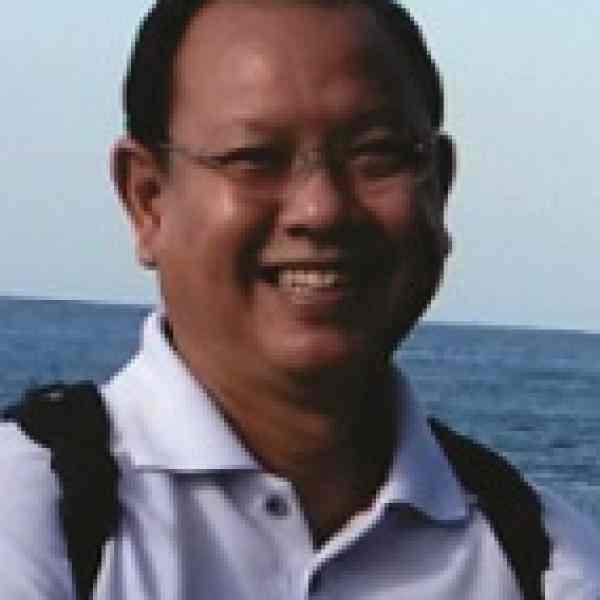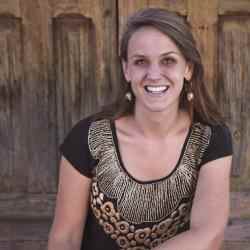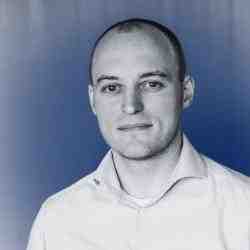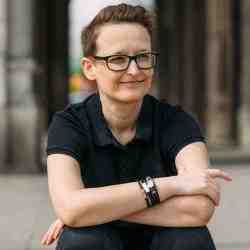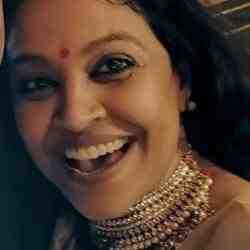Introduction
Despite the growing number of disability in Indonesia, prevention measures have not been taken into consideration. Purnawan Budisetia is working on preventing disability caused by certain congenital birth defects resulting from intermarriage. He does this by working within the traditional culture of Balinese religion.
The New Idea
Purnawan is working on changing the cultural value system as part of preventive measures against disability. Since it is difficult to break through the culture of cast system especially to get the buy in of the highest caste priest of Brahmana, Purnawan has successfully engaged religious leaders (Pandita) from the lowest cast priests to bring about the idea. Together with parents of disabled children, these Pandita educate people about the high risks of intermarriage and disability. While preaching, they remind people to discontinue and avoid forbidden marriages, including intermarriage as written in the Balinese Hindu traditional customs. Purnawan also works with religious communities to break the stigma against disability, which is perceived to be a punishment for misdeeds in the past thus is not allowed to go to temples for praying. Now disabled people could practice their religion and pray in temples. Purnawan also works with schools and council young people on intermarriage as part of adolescence reproductive health education.
Purnawan integrates rehabilitation and education for the disabled people to improve their lives as equal citizens. Having reversed the traditional belief about disability as a family disgrace, Purnawan has been able to convince parents not only to let their children go outside, access the rehabilitation therapy and get education, but also to take part in the rehabilitation therapy at home. He has linked this program with the District and Provincial Social Welfare Bureaus through their Social Service Mobile Unit.
In the near future he plans to spread the programs to other regions in Bali and beyond, utilizing his national network of Social organization National Partner and Cerebral Palsy Children Community.
The Problem
A recent report estimates that globally eight million children each year are born with serious disorders caused at least partly by their genes. That is about six percent of all births worldwide. The study links high birth-defect rates in developing countries to poor health care and nutrition. The researchers also note higher than average rates of marriage among blood relatives.
Many disabled people are hindered by the deep-seated social and cultural norms. In some traditional communities intermarriage, which could possibly result in disabled offspring due to genetic disorder, remains in practice. In Bali, for example, although forbidden in modern Balinese religion, marriages between siblings or cousins are still desirable to keep property and assets in the family. With the current practice, DNA testing to prevent birth defects is unfortunately unpopular.
Despite the growing population of disabilities, local culture and tradition have marginalized disabled people. For example, over generations, Balinese view people with physical disabilities as being cursed. Disabled people are therefore not allowed to pray in temples and engage in religious practices. Perceived as a family disgrace, parents sometimes ostracize their disabled children, leaving them isolated in the home and not treated the same way as other children. Almost half of poor disabled children never go to school due to the shame to their families, as well as being rejected by the public schools. Likewise, many disabled elderly are kept inside untreated. Most disabled people then resign themselves to their fate of being the invisible and unwanted people.
The Strategy
Purnawan applies a strategy to work with more approachable Balinese priests and traditional customary leaders to bring the issues of disability to the open, thus discontinuing intermarriage, eliminating stigma and discrimination against disability.
Through public seminars and religious preaching, the religious leaders reinforce the Balinese Hindu customs about forbidden marriages including intermarriage. They also straighten up the misinterpretation of some religious teachings, which result in discrimination against the disabled. They clarify that physical disability is not a curse and therefore they are allow to pray at temples and sacred places. The success of the campaign is shown by the request of community groups who asked their religious and customary leaders to rehabilitate their temple so that it is disabled friendly.
There are sixteen prohibited marriages in the Balinese Hindu tradition that have been misunderstood by people, of which twelve are related to possible genetic problems due to intermarriage. In order for people to engage but not feel threatened, Purnawan chose to work with Ide Pandita, Priests of the lowest caste, not Ide Pedande, Priests of highest and middle castes, because they are more open to changes. No one dares to raise the issue of inbreeding as it deals with the Balinese culture. The Ide Pandita work with the village traditional customary leaders in relation to the Hindu Association. These religious and customary leaders will share the information about intermarriage and disability as karma with people on the grassroots.
Purnawan’s second approach is to work with schools and universities to raise awareness to young people. Through a school workshop he engages students, their parents and families. The religious leaders share the Hindu belief system around forbidden marriages where incest, or marriages between siblings or between a child and a parent, is strictly prohibited. As a follow up from the workshop, Purnawan runs youth camps to help students think about their future marriage relating to their reproductive health. Students consider all consequences from unhealthy and high-risk sexual behavior. He also partners with the Public Health Clinics to do regular health check-ups to detect early symptoms of disability in child development, strokes for adults, and hearing failure.
In addition to the preventive approach, Purnawan also runs an integrated approach to education, rehabilitation and independency. He allows disabled people to enjoy life as equal citizens, by providing physical therapy and occupational therapy to clients of all ages who have a variety of conditions including cerebral palsy, multiple sclerosis, muscular dystrophy, or have had strokes causing them paralysis or immobility. YPK, the organization he set up, has worked with over 1000 clients and offers physical and occupational therapy in Denpasar, South Bali.
To reach out to people in villages who cannot get access to rehabilitation, they developed a mobile therapy clinic, which brings the therapists out into the villages. The initiative has now served villages in 5 districts of Bali Province. To ensure sustainability, they train family members to do the therapy at home. The program is backed up by YPK’s volunteer Occupational Therapists. Purnawan also partners with different education institutions including faculty of medicine, nursing and therapeutics through which students do field practice while doing volunteering work. He also links this service with the existing government’s mobile social service unit.
An integrated therapy service has been developed including physical and occupational therapy, a variety of life skills training and exercise programs. Through regular group outings and recreational activities outside the centre, Purnawan allows the disabled to have social interaction. By visiting the beach, for example, children can experience new things, learn to deal with some challenges, gain social interaction, relax with their family, and interact with nature. In partnership with the Bali Sport Foundation, disabled children learn to swim, while also learning about underwater safety and gaining aquatic therapy.
Purnawan is planning to spread the centre and set up the branch in East and West Bali. He is also working to replicate beyond Bali. For that, Purnawan networks with different organizations at the regional and national level, including with the Social Organization National Partner and Cerebral Palsy Children Community. They can come and learn from his centre; alternatively, he sends his staff to new sites. People could replicate the basic principles, techniques and innovations but people still need to adjust to local challenges in bringing about improved welfare for the disabled. He is also planning to officially register the center as a formal school for children with special needs so that they can get formal certificates.
In the near future, he is also working on developing nursing homes for disabled elderly, as there is currently none in existence. All his endeavors are run on a voluntary basis and apply a cross subsidy mechanism where the haves will donate more to subsidize the poor, and mobilize donations. Purnawan is currently designing the organization’s financial sustainability strategy. To diversify the funding source and sustain his endeavor, he is planning to set up a Physiotherapy and Home Care business unit.
The Person
Purnawan, the youngest of 5 siblings, was born in Jakarta but grown up in Semarang, raised by a considerably poor family. His father received small payment for working at a rice mill as a mechanic. His mother ran a small business through which she could then make a living for the whole family. Although poor, his parents often helped others. Since he was a child, Purnawan was keen on helping other people, which he learned from his parents.
When he was ten years old, Purnawan was hit by a motorcycle while riding on a bicycle. The accident made his left eye blind. He went through some hard times of not having self-confidence and therefore preferred being by himself. However, he could make through and was then active at the student union at his high school, leading the student board’s magazine activities. After graduating from high school, he was fortunate to meet someone who asked him to take care of his mother, and who helped fund his further study in agriculture. He was then active at the Campus Community Social Work. He went to villages helping the communities to improve their health, family nutrition and their agribusiness at the same time.
Once he graduated in 1987, Purnawan worked as a teacher at a Farming High School in Bandungan, Ambawara. While teaching, he engaged in his sub-village activities and was appointed the secretary. He was also active at his Catholic Church community helping farmers in the surrounding neighborhood with their farming. However, he decided to move to Bali with a new job and was considered a career threat by the headmaster, as he was the only university graduate at the school. Purnawan learned that people help regardless of status, economic or religious background. In 1990, he joined Duta Bina Bhuana Foundation in Bali as the program director, an agriculture research and micro enterprise development organization.
While serving the poor in different villages for years, Purnawan learned that there were many disabled children who were kept at home. When asked where else in the village they found disabled children, none of the villagers would admit there were any. Later Purnawan knew that they were well kept inside the house due to a misinterpretation of religious belief that the family was cursed. Concerned by the injustice and moved by empathy, he set up the Bali Humanity Care Foundation (YPK Bali) in 2001 together with his late colleague dr. Jonathan. They split the role where dr. Jonathan led the organization and Purnawan did the fundraising. Purnawan took over the leadership in 2007 when dr. Jonathan passed away. His extensive work with disabled children and their families in Bali provided him with a background for understanding the cause of disability and the nature of congenital birth defects.
